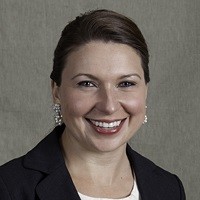At the large consulting firm RGP, CFO Jennifer Ryu leads a finance and accounting team whose work has become less data entry-intensive, more technology-enabled and increasingly strategic. This evolution has been underway for some time, but recently picked up momentum following the introduction of an initiative to make work at the publicly traded company faster, more efficient and no longer manual.
In turn, the initiative has altered the composite of talent sought in finance and accounting. “Business knowledge and competency in digital technology and automation are now crucial skills,” Ryu says.

The reasons have to do with the added responsibilities expected of finance and accounting professionals. “My team has more of a cross-functional role today, working ever closer with leaders in HR, talent and recruitment, learning and development, and other functions to assist their decisions. To do that, they need to understand each function’s current and future goals and challenges, connect it to the rest of the business, and use technology to drive decision-useful insights.”
This expansive role contrasts sharply with the traditional data entry work typically performed in finance and accounting organizations, causing many young people to pass on accounting as a profession and incumbent accountants to head for the exit. According to a Bureau of Labor Statistics report analyzed by The Wall Street Journal in September 2023, more than 300,000 accountants and auditors quit their jobs between 2019 and 2021, a precipitous 15.9 percent decline.
Not surprisingly, talent availability and retention landed at the top of a list of CFOs’ most worrisome internal risks in Deloitte’s third quarter CFO Signals survey. “People want purpose; if all you’re hired for is a job and not your skills, the door is always open,” says Jessica Bier, leader of Deloitte’s Finance Transformation Human Capital practice.
The door may soon begin to close if the more interesting, purposeful and career-fulfilling work performed by Ryu’s (and other CFO’s) finance and accounting teams becomes widespread. Assuming this professional transformation, the much-publicized accountant shortage may ease and even reverse, ushering in new excitement about a job criticized as monotonous and boring. “The profession has been hard on people,” Ryu acknowledged. “The hours are long, the work is sometimes deadline-driven, and people burn out.”
The digital initiative at RGP, whose consulting work is focused on business transformation, is predicated on streamlining the work, freeing staff from mind-numbing spreadsheets to focus on value-added service to business functions. “Finance and accounting requires good communicators and storytellers who can connect the dots, anchored by the numbers, for the rest of the business,” she says. “Yesteryear’s teams understood the numbers, but they weren’t connected to the rest of the business.”
Interesting Work with Career Potential
Her assessment of the strategic work performed by her team, and the skillsets demanded, was echoed by other finance chiefs and is in line with projections by management consultants and staffing firms.
George Pentaris, market vice president at Roth Staffing Companies, whose Ledgent division focuses on recruiting finance and accounting talent, says he has noticed a transition in the finance and accounting skillset sought by today’s CFOs. “We’re seeing less interest in accounting data entry skills and much more interest in higher-level automation, software and AI technologies, along with softer skills like communications and collaboration,” he says.
Bier has noticed the same thing. “Many CFOs are bringing the superpowers of their function to other function leaders on a project-by-project basis to help inform their decisions,” she says. “People who understand the way that money moves are valuable to every function as a service provider of analytics, insights and decision-making, particularly if they are also creative, empathetic and innovative.”

Will They Swipe Right Or Swipe Left?
How to make sure your company is a match for today’s top talent.
As team members provide such value to operating functions, they absorb that function’s capabilities to broaden their skillset, she says. “No one knows how to tell a story better than marketing,” says Bier. “An accountant that works with marketing on a project not only is doing something meaningful, but it also improves their storytelling capabilities. You retain people when they’re engaged in interesting work.”
Kathryn Kaminsky, vice chair and trust solutions co-leader at audit and advisory firm PwC, offered a similar perspective, commenting that today’s finance and accounting teams are “human-led, technology-powered.”
She elaborated that, “Accountants need to be able to use technologies like AI to model opportunities and risks for their peers in other functions. The supply chain team, for example, may want to model the financial impact of climate risks. To do this, an accountant has to understand each function’s operations in relation to the CEO’s vision and strategy, and have soft skills like listening, intellectual curiosity and objectivity to communicate the business imperatives.”
This very different profile is the impetus driving modern CFO recruitment and retention strategies, one that will become even more ingrained as the use of technologies like Generative AI proliferates. According to Deloitte’s third quarter CFO Signals survey, 42 percent of CFOs are experimenting with GenAI for use by their organizations. Eventually, experiments will yield to regular use. “The people who understand how to read financial reports, meaning finance and accounting teams, will increasingly use software and AI to analyze the numbers in relation to solving function leaders’ need to make strategic business decisions,” Pentaris says.
Hiring Protocols
Other financial leaders are shifting their finance and accounting teams to higher-level work, and investing in the upskilling this entails. “We have this mantra in finance that we no longer just report the news, we make the news,” says Chad Wonderling, interim CFO and chief accounting officer at midsized company Salesloft, an AI-powered revenue-lifecycle sales engagement platform with more than 5,000 customers and 800 employees.

“We’re at the intersection of everything that happens within the company,” he added. “This philosophy and mindset force us to get out of our seats and go work with the business functions. We prioritize that and it’s not going to change.”
Since joining Salesloft in 2018 as vice president of finance and corporate controller, Wonderling gradually put together its entire 16-person finance and accounting organization. “I hired them all with the premise of finding people who’d go deep into the traditional responsibilities of the role, but also had natural curiosity and could spread their wings and learn the business, inside-out,” he says.
“Finance is not just about the numbers and running the reports. That’s table stakes today,” he says. “The team needs to tell the story of what’s going on in the business to operating leaders, helping them manage opportunity costs, tradeoffs and other options that drive greater value and better results.”
These skills are a far cry from two decades ago, Wonderling says. “Twenty years ago, a big part of the accounting and finance professional’s job was data entry; not today. CFOs are looking for people who know how to use technology tools that extract insights from digitized and automated financial data. There’s a lot of tools within the accounting and finance world—having exposure to these tools is something we’re always looking for,” he says.
Wonderling’s recruitment plan is focused on candidates with technical accounting and/or finance competencies, technology skills and soft skills. “The job demands more polished people skills, given the need to communicate with different audiences and function leaders,” he says. “People who come up short in one area or another can learn from current team members who have experience using a particular technology tool, say, or have been working with the sales team or HR for some time. I had such mentors myself and now serve as one.”
The emphasis on the development of a broadly talented finance and accounting team is paying off. “In the past five years, our revenue has increased 10x,” he says. In an email, he noted that Salesloft’s most recent valuation was approximately $2.3 billion.
Finance and accounting team members at ThreatX also regularly partner with their peers in other functions to provide numbers-driven value-added advice. “Someone has to gather the financial information, glean business insights from the numbers, and communicate this in a way that provides context and not just facts and figures,” says Libby Merrill, CFO at the SaaS-based managed API and web application protection platform, whose business customers ranging from small and medium sized enterprises to the Fortune 500. “That’s our role now.”

To perform this role, Merrill’s talent recruitment strategy is similar to the approach taken by Ryu and Wonderling. “I look for people with an accounting or finance degree, some experience in an industry complementing the services offered by ThreatX, and softer skills like communications and storytelling, which aren’t typical finance skills,” she says.
She’s also open to job candidates with gaps in their experience like technical accounting competencies. “In such cases, we don’t expect perfection out of the gate; we can always provide coaching,” she said. “I’m always interested in people with diverse perspectives to help drive our future initiatives.”
Another skill in high demand is technology implementation experience, “people who have implemented the tools we have on our finance roadmap as well as other technologies like AI that we’re exploring for the future,” she says. “AI is something I’m still figuring out, as are other finance professionals. It’s more important to me now that the team understands the specific context of data to provide value to the operating functions, helping them weigh risks and mitigate them. Critical strategic determinations require human judgement.”
Like the other CFOs, Bob Feller believes the opportunity to support decision-makers in other functions rounds out team member skills from a career perspective. “These days, you don’t get to become the CFO unless you’ve done some stints across the business,” Feller says.
He, too, touted soft skills as a key component of his talent recruitment strategy. “I’m a big fan of hiring more junior, less-credentialed people and developing them than I am bringing in people with 10 to 20 years’ experience, unless for very senior roles,” says Feller, finance chief at Auvik Networks, a global provider of network management and monitoring software, with more than 6,300 customers and over 325 employees.
“It’s not an ageist thing,” Feller explains. “I just don’t want to unteach someone with bad habits as things are changing rapidly. We’re growing at a 30 percent annual clip; I need smart people in accounting who have the desire and ability to learn and are flexible and comfortable rotating into different jobs on the controllership side and in FP&A as opposed to the old linear career path.”
Training Day
Each CFO also commented on the need for the continuous training and upskilling of current staff to enhance their business knowledge and tech savvy to provide value-added analyses throughout the enterprise. Ryu says that RGP has a dedicated learning and development function that’s focused on career development. “Talent is so hard to find in finance and accounting that you have to be creative in developing the skillsets that you currently lack,” she says.
Kaminsky from PwC emphasized that the breadth of skills needed in finance and accounting continues to widen, following the same trajectory as the CFOs’ expanding proficiencies and responsibilities. “I trained to become a CPA, but accountants today need to be much more than number crunchers,” says Kaminsky. “Just like the CFO is more involved in strategy and the operating functions as a team member, they want the same thing from the staff. That takes training and upskilling to use technologies, understand the business, listen to what is being said and build relationships.”
Pentaris from Roth Staffing agreed, citing a “significant uptick” in client companies “embracing the need to invest in the continuing education of their finance and accounting professionals.”
Several interviewees commented on the retention aspects of having a work culture aligned with the expectations and desires of younger employees. “Millennials and Gen Z are looking for different things than I looked for when I went into public accounting and subsequently worked 65 hours a week, doing whatever it took to build my career,” says Ryu. “They don’t want to do that, and I don’t blame them. What they care a lot about are culture, diversity, purpose and work-life balance.”
Pentaris agreed. “The most important retention strategy is a strong company culture, building trust among team members by showing genuine care,” he says. “In today’s world, that means flexibility on work location and schedules, investments in tools enhancing innovation and work efficiency, and committing to talent development.”
In the many organizations Roth Staffing serves, four generations work side-by-side, each generation composed of different skills, Pentaris notes. “We have so much to learn from each other, but it takes patient teaching, listening and receptivity to new ideas,” he says. “What remains the same is everyone’s responsibility to leave things better than they were when they joined the company.”








